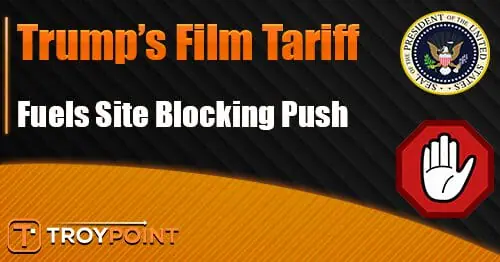Trump’s Film Tariff Sparks New Push for Site Blocking Law
Former President Donald Trump has proposed a 100% tariff on films produced outside the United States, aiming to revitalize domestic film production and counteract foreign tax incentives that have drawn American filmmakers abroad. Trump argues that these incentives pose a national security threat by undermining the U.S. film industry and spreading foreign “messaging and propaganda” .
The proposal has sparked significant controversy. Labor unions like the Teamsters have expressed support, citing the potential for job creation within the U.S. Conversely, international film industries, particularly in the UK and Ireland, have raised concerns about the economic impact and potential job losses resulting from such tariffs .
Legal experts question the feasibility of implementing these tariffs, pointing to the Berman Amendment of 1988, which prohibits restrictions on “informational materials” such as films, thereby potentially rendering the tariffs unlawful . Additionally, the Motion Picture Association notes that the U.S. film industry currently enjoys a substantial trade surplus, suggesting that the proposed tariffs could disrupt this balance .
While the White House has not finalized the tariff decision, it is exploring various options to protect national and economic security. The proposal has ignited a broader debate on the best strategies to support the U.S. film industry without compromising international collaborations and market dynamics.






